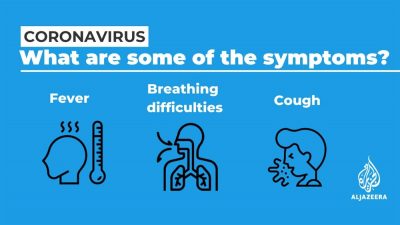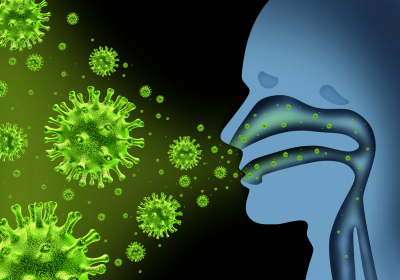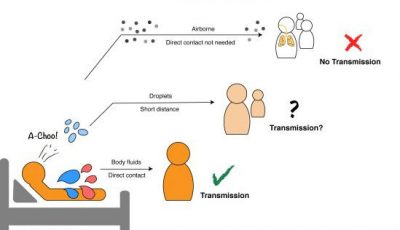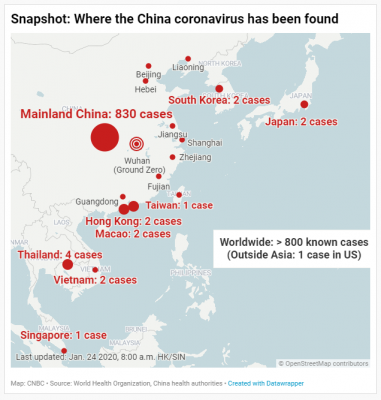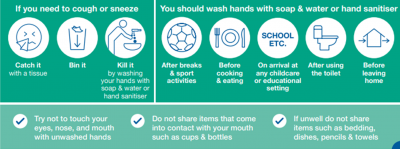A useful guide.
Ms Burrell and Mrs Pugh, Science Department, have provided a handy guide to a very current issue, the coronavirus, aka COVID-19. As they say, ‘we have produced this so that girls are able to interpret the headlines on the virus correctly and properly look after themselves’.
We hope that you find it useful.
What is the coronavirus?
- Novel coronavirus (COVID-19) is a new strain of coronavirus first identified in Wuhan City, China.
- A coronavirus is a type of virus. As a group, coronaviruses are common across the world.
How serious is coronavirus?
- It can cause flu-like symptoms, including fever, cough & difficulty breathing
- The infection is not serious for most people, including children
- There is currently no vaccine
- Most people get better with enough rest, water to drink and medicine for pain
- Generally, coronavirus can cause more severe symptoms in people with weakened immune systems, older people, and those with long-term conditions like diabetes, cancer and chronic lung disease.
- There is no evidence that children are more affected than other age groups – very few cases have been reported in children.
How is coronavirus spread?
- From what we know about other coronaviruses, spread of COVID-19 is most likely to happen when there is close contact (within 2m) with an infected person.
- It is likely that the risk increases the longer someone has close contact with an infected person.
- There is currently no good evidence that people who do not have symptoms are infectious to others.
- Droplets produced when an infected person coughs or sneezes (termed respiratory secretions) containing the virus are most likely to be the most important means of transmission.
- There are 2 routes by which people could become infected:
- secretions can be directly transferred into the mouths or noses of people who are nearby (within 2 metres) or could be inhaled into the lungs
- it is also possible that someone may become infected by touching a surface or object that has been contaminated with respiratory secretions and then touching their own mouth, nose, or eyes (such as touching a door knob or shaking hands then touching own face).
How likely are you to catch the virus?
You can only catch it if you have been close to a person who has the virus
The chance of being in contact with the virus is currently low in the UK
If you have travelled to areas where many people are infected, your chance of catching the virus is higher, i.e. China and any affected areas
What is contact?
The definition of a contact includes:
- any close face-to-face or touching contact
- talking with or being coughed on for any length of time while the individual is symptomatic
- anyone who has cleaned up any bodily fluids of the individual
- close friendship groups
- living in the same household as a confirmed case
- contacts are not considered cases and if they are well, they are very unlikely to have spread the infection to others
What happens if you have contact with someone with COVID-19?
- You will be asked to self-isolate at home for 14 days from the last time they had contact with the confirmed case
- You will be actively followed up by a Health Protection Team
- If you develop any symptoms within your 14-day observation period you should call NHS 111 for assessment
- If you become unwell with cough, fever or shortness of breath you will be tested for COVID-19
- If you require emergency medical attention, call 999 and tell the call handler or ambulance control of potential contact with COVID-19
- If you are unwell at any time within your14-day observation period and you test positive for COVID-19 you will become a confirmed case and will be treated for the infection
Quarantine
- The incubation period of COVID-19 is between 2 and 14 days. This means that if a person remains well 14 days after contact with someone with confirmed coronavirus, it is unlikely that they have been infected.
How can you stop coronavirus spreading?
Face masks
- Face masks for the general public are not recommended to protect from infection, as there is no evidence of benefit from their use outside healthcare environments.
Travel
- Currently there are minimal cases outside the risk areas and therefore the likelihood of an individual coming into contact with a confirmed case is low.
- There is no need to advise anyone to avoid normal activities or educational settings unless they have had contact with a confirmed case of COVID-19.
- If individuals are aware that they have had close contact with a confirmed case of COVID-19 they should contact NHS 111 for further advice.
Staying healthy
- Wash your hands properly with soap and water – sing two rounds of happy birthday while washing
- Dry your hands properly after washing
- Avoid touching your face
- Get enough sleep
- Eat enough fruits and vegetables
- Do some regular exercise
- Keep hand sanitiser on hand
- Go outside and open windows to get in some fresh air
- Clean your surroundings – surfaces and door handles
What should you do if you feel unwell?
Keep away from others and stay at home to stop the infection spreading.
Avoid public transport.
If you become unwell at a place of education, tell a member of staff and let them know if you have travelled to any other countries in the last 14 days.
Call NHS 111 for advice
Categories: Junior Nursery Prep Senior Sixth Form Whole School

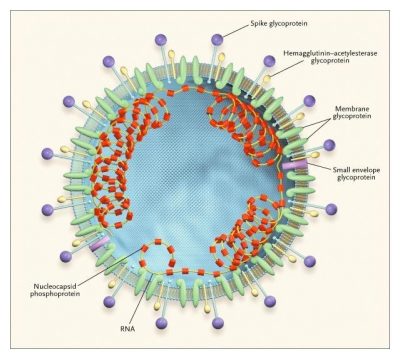 How serious is coronavirus?
How serious is coronavirus?
